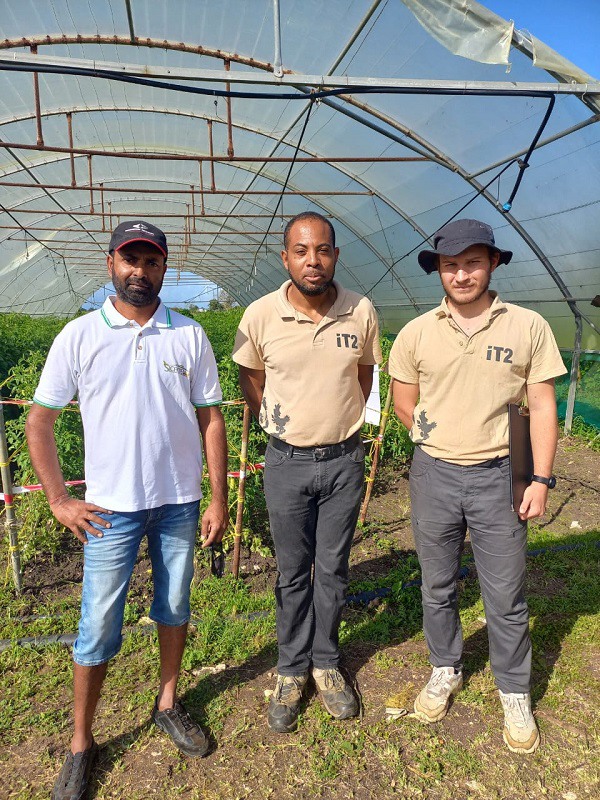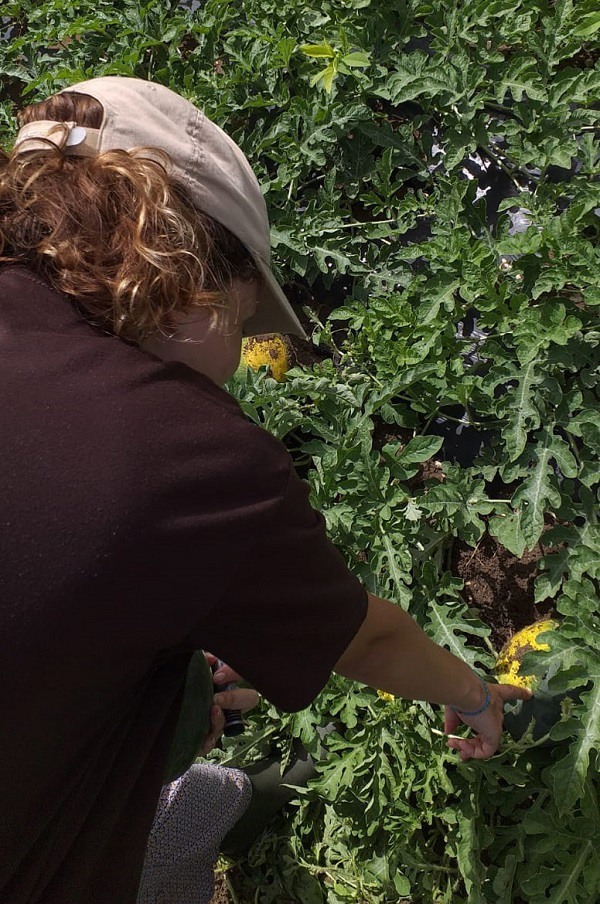The Technical Tropical Institute (IT²) used to specialize mainly in banana research, but since 2020, it has shifted its focus to other crops in response to demand from producers of Guadeloupe and Martinique. The two islands are heavily dependent on imports: almost 50% of the fruit and vegetables consumed are imported. The institute and the producers have, therefore, defined work priorities in an attempt to achieve food self-sufficiency within a few years and thus reduce their dependence on imports.
 Photo credit: IT² ©France-Antilles
Photo credit: IT² ©France-Antilles
Climate and diseases: variety trials on tomatoes and watermelons
IT² has recently carried out watermelon and tomato variety trials at the request of IGUAFLHOR (Interprofessional Association of Guadeloupe for Fruit, Vegetables, and Horticulture) and in close collaboration with various organizations of producers. “Five small-caliber and 6 large-caliber watermelon varieties have been tested to identify the varieties that are most resistant to climate change and diseases." Watermelon trials.
For tomatoes, 8 varieties have been tested for yield and disease resistance (in Saint-François, northern Guadeloupe). “Two varieties were eliminated because of their lower yields,” explains Jacques Louisor, head of the Varietal Improvement Department. The next comparative tomato trial will be carried out in Basse-Terre (southern Guadeloupe). “In this trial, we will be keeping the varieties that have performed well and adding new ones.” Tomato trials.
Designing low-input systems: current and future projects
A project to use service animals, notably sheep, to control weeds in banana production is due to start in 2023, with the aim of further reducing the use of herbicides. A melon trial is also underway to test the effectiveness of an alternative to chemical inputs in disease control. Begun in 2023, the results should be unveiled in 2024 and 2025.
For more information:
Institut Technique Tropical – IT2
C/o CIRAD, Roujol
97170 Petit-Bourg
www.it2.fr
